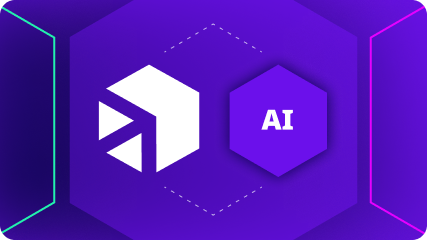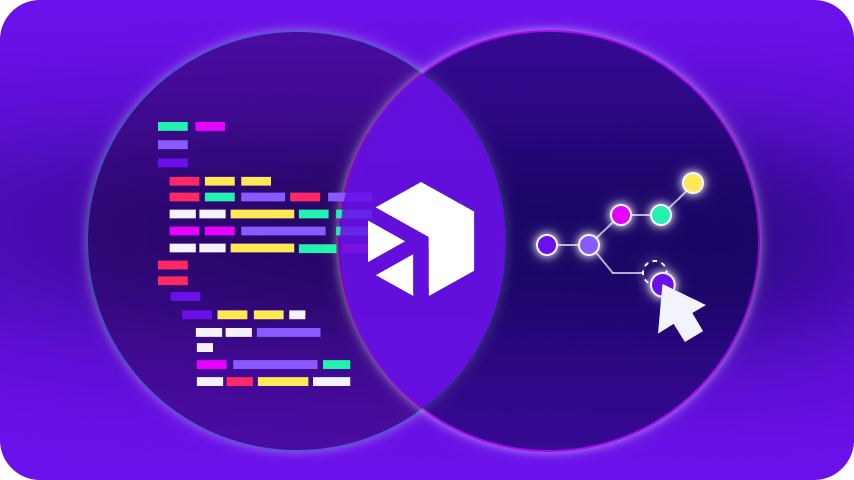June 15, 2023
The Digibee State of Enterprise Integration 2023 survey was carried out earlier this year, collecting input and opinions from one thousand CTOs, CIOs, system architects, and web developers in North America.
In this blog post we examine the findings we uncovered within the Finance segment, one of three industry sub-reports we published.
One very interesting area of insight is the motivation of enterprises that are initiating enterprise integration. Based on answers from Finance respondents, top objectives for integration rank as follows:
- Migrate to/upgrade cloud, digital transformation
- Improve data security
- Enable automation and AI
Let’s dig into the data.
1. The Cloud & Digital Transformation
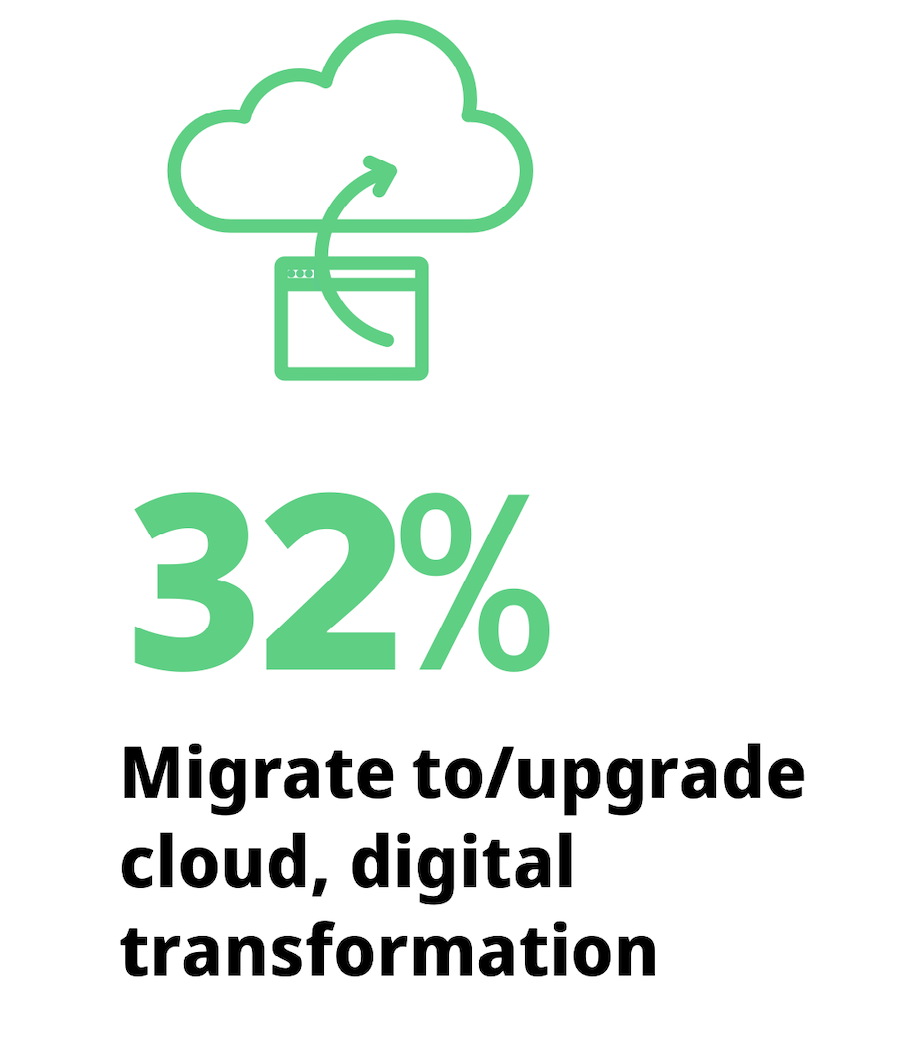 According to 32% of the respondents, cloud/digital transformation is the top integration objective for Finance organizations. This makes a lot of sense, especially when you consider the criticality of modernization and innovation within an industry undergoing rapid change.
According to 32% of the respondents, cloud/digital transformation is the top integration objective for Finance organizations. This makes a lot of sense, especially when you consider the criticality of modernization and innovation within an industry undergoing rapid change.
Finance is a long-established market segment where it’s not uncommon to find legacy, non-cloud native technologies still in use. Rather than advancing the digital strategies critical to the growth of the company, these applications hold it back.
For some organizations, a first step toward the future is often a first step to the cloud. Many Digibee customers in the finance sector implement enterprise integration to support their cloud initiatives, reflecting a growing trend within the industry. In fact, according to a survey by Google Cloud and Harris Poll, 83% of financial services companies are using the public cloud in some form.
With a properly connected environment, Finance companies reap all of the rewards associated with digital transformation, including greater agility, real-time information, and a truly omni-channel and personalized customer experience.
“Today, succeeding in Finance requires a unique combination of creativity and caution. Without a truly connected environment, financial organizations are unable to innovate, curtailing their efforts to digitally transform the business.”
– The State of Enterprise Integration for Finance Report 2023
2. Improve Data Security
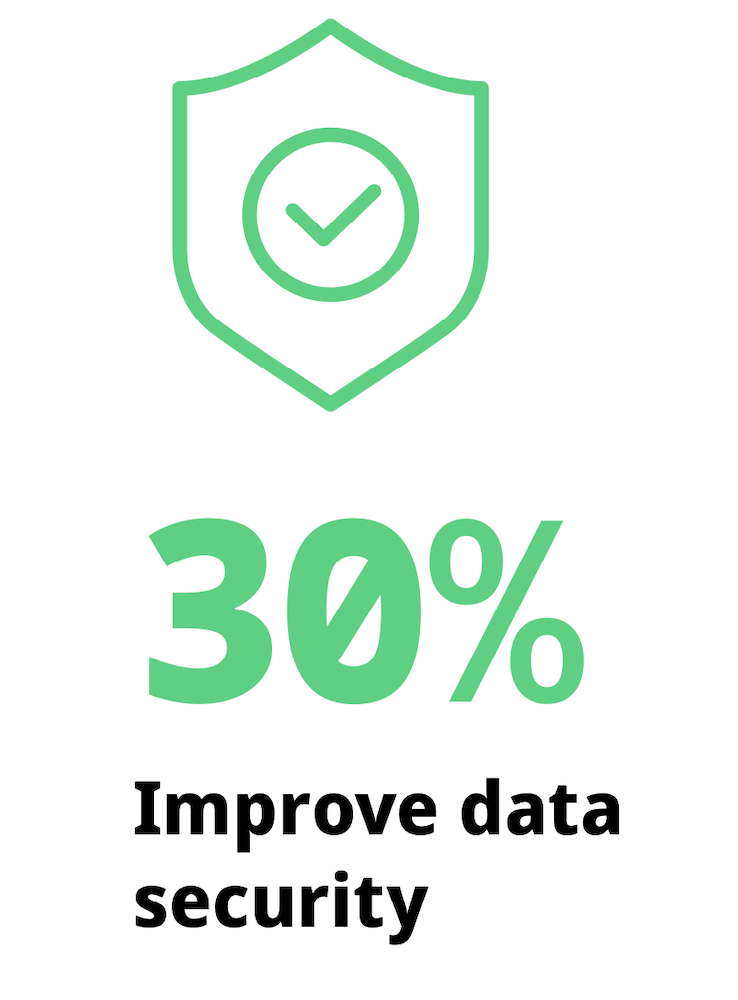 Finance organizations deal with a complicated security landscape, beholden to a range of regulatory bodies concerned with privacy, disclosure, fraud prevention, anti-money laundering, anti-terrorism, and other rules and regulations.
Finance organizations deal with a complicated security landscape, beholden to a range of regulatory bodies concerned with privacy, disclosure, fraud prevention, anti-money laundering, anti-terrorism, and other rules and regulations.
Any company providing financial services, from a loan company to a brokerage firm, must have the proper safeguards in place to protect its customers and the business.
Failure to deliver on this front is catastrophic to the reputation of the company, breaching customer loyalty and trust, and impacting the business for the long term. For context, the financial sector experienced the second highest number of data breaches in 2022, second only to the government.
As a finance organization progresses in its digital transformation, the proliferation of data increases. Cloud-based platforms and infrastructure rely on connected devices, each generating always-on data streams. CRM and other enterprise systems also collect data from a wider range of sources, increasing the size of these databases.
Without an integration strategy in place, Finance organizations must deal with these ever-growing and multiple stores of siloed data individually. Enterprise integration helps to consolidate the data, streamlining security protocols, permissions, and data access for stronger data security across the operation. It also optimizes analytics and other insights the company can extract from the information.
3. Enable Automation and AI
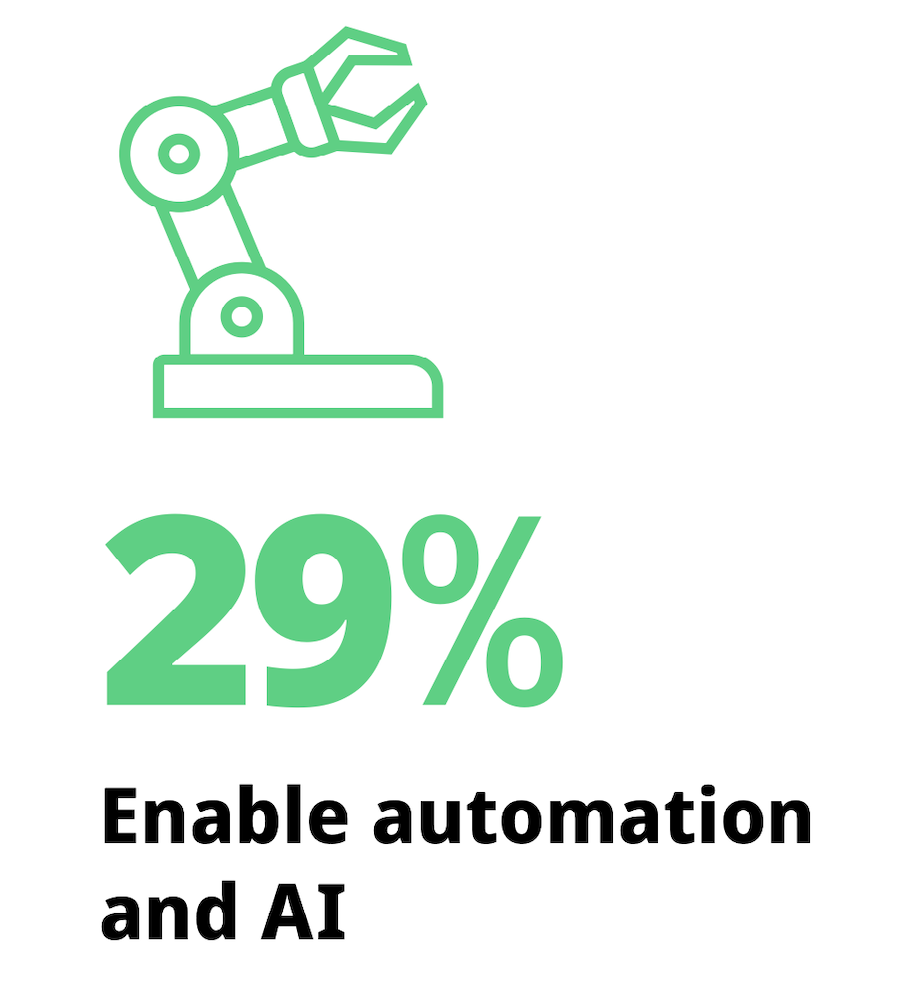 29% of respondents placed automation and AI on their top three list. This is a natural progression. Once finance organizations have their cloud and data security houses in order, it’s finally time to innovate!
29% of respondents placed automation and AI on their top three list. This is a natural progression. Once finance organizations have their cloud and data security houses in order, it’s finally time to innovate!
For what many consider a more traditional space, sometimes slow to adopt new technologies out of a culture of caution, Finance organizations are rapid adopters of AI, especially chatbots. The technology improves customer service while automating repetitive tasks, increasing efficiencies in call centers, and gaining real-time insights from the data these interactions generate.
Along with streamlining the customer experience, AI enables the business to make informed decisions about risk and other financial considerations. As a result, the decision-making process becomes more efficient and accurate.
AI is also a game-changer when it comes to fraud and other security issues. For example, an AI-powered anti-fraud engine developed by KPMG in a recent collaboration, reduces fraudulent transactions by up to 40%.
Automation is synonymous with AI, a valuable capability that delivers meaningful benefits across the operation, including increased accuracy, decreased human error, and a more responsive (and faster) customer experience.
Ironically, artificial intelligence can help redefine and restore personalized experiences that build trust for consumers and small business owners.
– Forbes: Artificial Intelligence Opens Up the World of Financial Services
Achieve Your Business Objectives with Digibee’s iPaaS
Digibee’s iPaaS technology is low-code and cloud-native, enabling you to seamlessly connect all of the dots (and your IT infrastructure) so you can achieve your digital transformation objectives.
Obtain your copy of the Digibee 2023 State of Enterprise Integration for Finance sub-report free of charge and examine all of the data. Understand how your peers are progressing and learn about year-over-year trends and observations to help inform your integration strategy.



